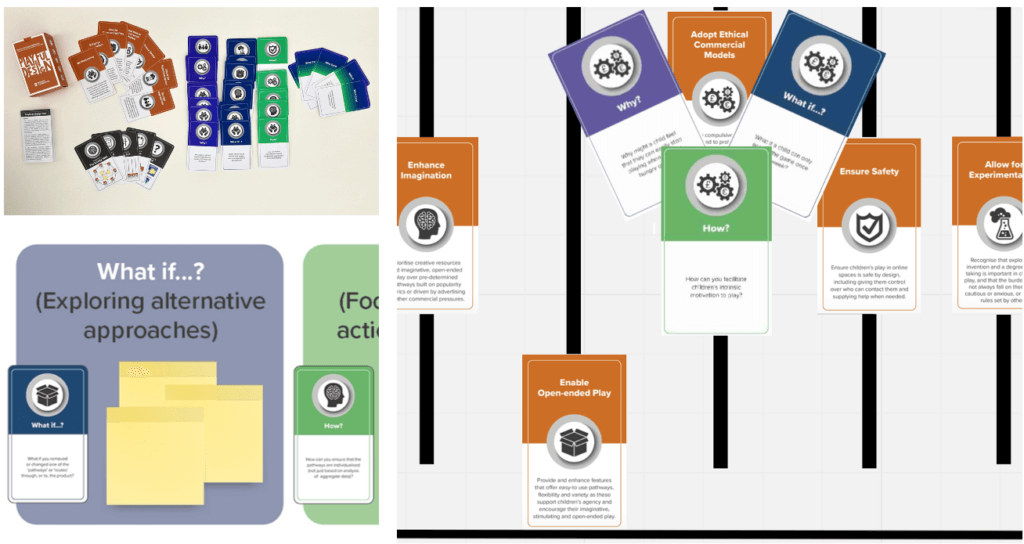By Kruakae Pothong, Sonia Livingstone and Angela Colvert
The Digital Futures Commission’s research on play in the digital world shows that, when it comes to play, children do not limit themselves to only the spaces, objects or products that adults provide. Children told us in our first consultation how they highjacked Zoom to create their playground to connect with their friends and family during the COVID-19 lockdown. However, few mainstream products and services children use for playful purposes are designed with children’s diverse requirements and rights in mind!
Playful by Design® principles
To help designers factor children’s needs and rights in their work, we built on our literature reviews on play in general and digital play by consulting children, parents, caregivers and professionals working with children about play.
Watch a summary of how we develop our Playful by Design® principles here.
We then surveyed 1033 UK children aged 6 to 17 about their experience playing online using Minecraft, Roblox, Nintendo Wii, Fortnite, WhatsApp, Zoom, TikTok and YouTube. Our ‘what works’ analysis helped to identify the digital features that either enhance or constrain the qualities of children’s free play. Finally, we synthesised seven principles for designers:

Each principle combines the digital features that should be dialled up or down to afford the qualities of free play that both children and experts value.

“I think having cards…that get you thinking about different ways to approach something or different methods of researching kids would be really helpful.”
Design researcher, prominent public broadcaster, UK
“The deck is useful for making the invisible, often malleable design process more concrete for novice designers. It also feels productive to the social development and process-sharing of partnership work, helping to concretely guide two or more teams to the same language, processes, goals [and] outcomes.”
Digital producer, large non-profit children’s media producer, USA
“You should actually take that feature, whatever you are designing, and go up against all of [the principles] and see how you actually fit each of them.”
Design researcher, a large toy company, international
Playful by Design rollout
Confident that our Playful by Design® tool offers a practical guide to redesigning children’s opportunities for digital play, we published it online and invited people to register their interest in the physical cards. So far, we have received requests from designers, design researchers, play professionals, an architect and university lecturers from Malaysia to Canada. They told us they intended to use the cards as part of their design sprints for user engagement, user studies, teaching and training new generations of designers.
We have also broadened the reach of our Playful by Design® tool through our professional networks, demonstrating the tool and inviting further feedback. We are excited that the tool is already being appreciated:
“What a fantastic resource. We’ve come across a lot of these resources. This one is exceptional! It’s been carefully curated in terms of the Tool’s design process.”
Jessie Johnson, Design Council
“There are other links with game developers, game educators, and games studies lecturers. It will be interesting to see how you can embed this tool into the academic education area. There are also links with screen-based learning and short-form education.”
Dr Maria O’Brien, Queen’s University Belfast & Imirt board member
“What I love about [these cards] is how they can introduce a concept without judgement or finger-pointing. They offer a playful way to encourage game makers to think about children in their game designs. Also, they provide a useful set of measures to highlight games that already stand out for delivering ambitious child-centric experiences.”
Andy Robertson, journalist and author of the book Taming Gaming
Our impact work is ongoing. We aim to get the tool to as many designers, developers, lecturers, teachers, trainers and design students as possible so that children’s digital future can be Playful by Design®. So, try our online tool here or request our physical cards here.